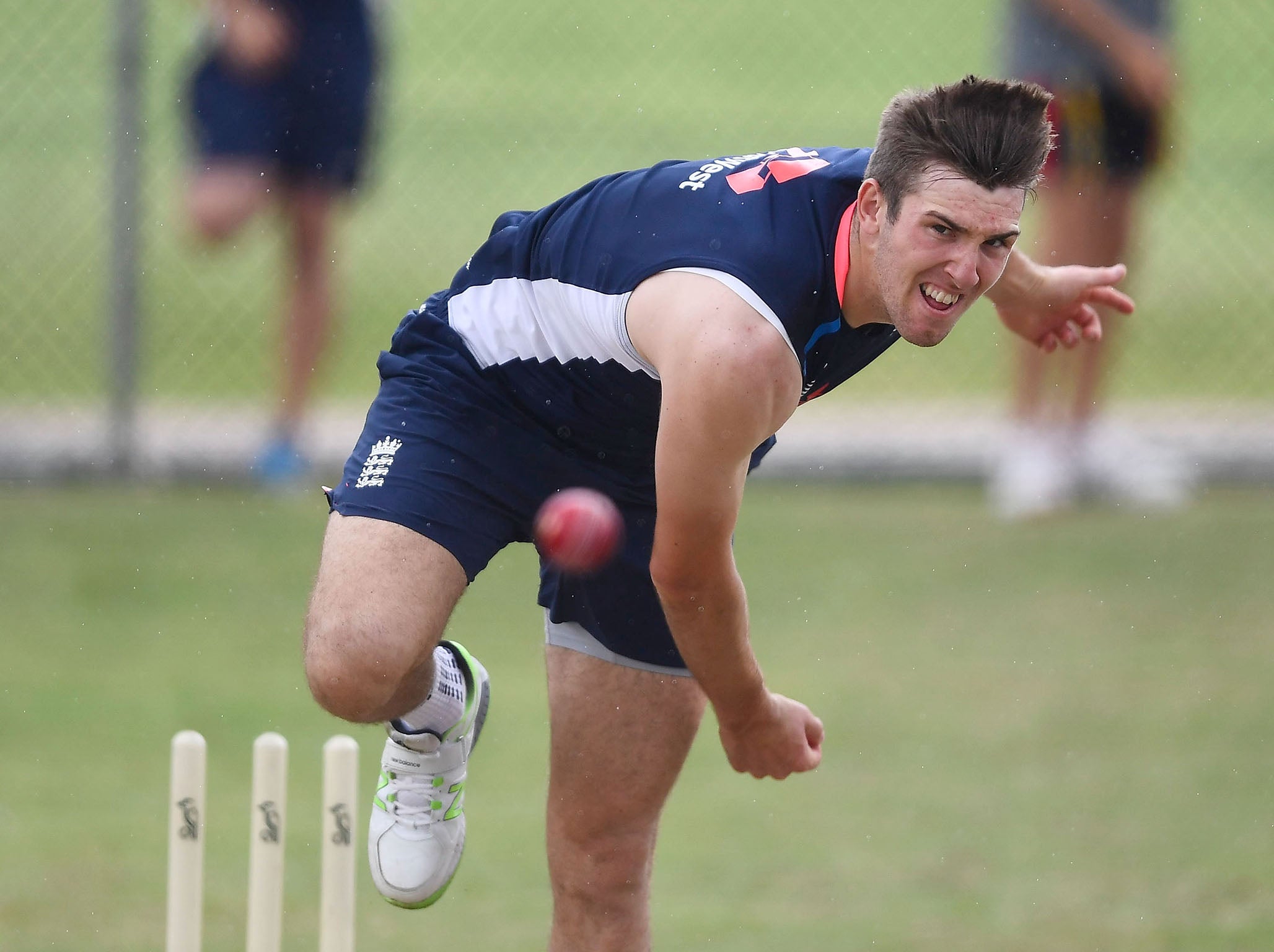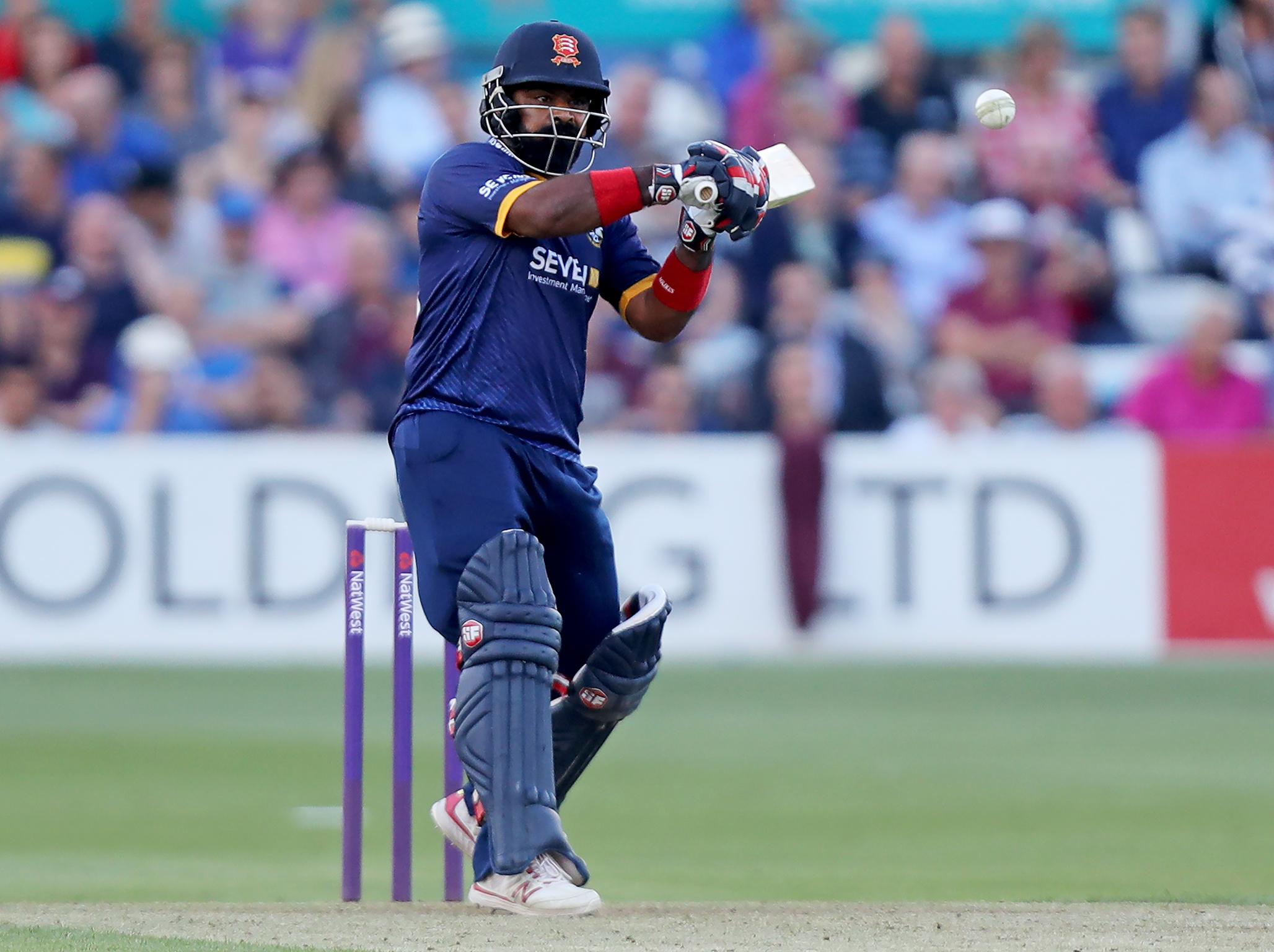Craig Overton's ugly episode provokes a question: when should we withdraw support for our sporting stars?
Overton will likely line up for England against Australia during the Ashes but a serious past misdemeanour could make getting behind the all-rounder uncomfortable

What does it mean to support a team? How should we feel about the eleven players lining up to represent us? Should it matter what kind of people they are, or were? How conditional should our support be, and when should we withdraw it? These are some of the questions I’ve been grappling with over the last couple of weeks, as Craig Overton prepares to make his England debut in the first Ashes Test next Thursday.
Overton, the Somerset all-rounder, looks likely to become England’s 681st male Test cricketer at Brisbane, after injuries to Steven Finn and Jake Ball. He is 6ft 5in, swings it at pace - although with the old Kookaburra ball, his role is more likely to be one of containment - and has looked sharp in warm-up games. At the age of 23, and coming off a superb season in county cricket, his time appears to be now.
No, Overton’s talent is not in serious question. What is in question is his character, and specifically an ugly episode that occurred two years ago at Hove.
These are the facts: in September 2015, Overton was bowling for Somerset against Sussex in a County Championship game. After one particular delivery to Ashar Zaidi - who was born in Pakistan but holds a British passport - Overton was heard to mutter the words: “Go back to your own f***ing country.”
Two separate witnesses noted the comment: non-striker Michael Yardy and umpire Alex Wharf. Yardy challenged Overton immediately. Wharf informed the other umpire. Both men reported it to the England and Wales Cricket Board afterwards. Under the ECB’s disciplinary guidelines, Overton could have expected a Level 3 charge, for “language that vilifies another person on the basis of race or national origin”. The previous season, Yorkshire captain Andrew Gale had used virtually identical words, been charged with just such an offence, and received a four-game ban.

When the ECB-appointed committee delivered its verdict, however, something quite different happened. Overton was found guilty merely of a Level 1 offence, the lowest possible, for using “obscene or offensive” language. It is often misleadingly reported that he was banned for two games for his actions. In fact, that ban resulted from the accumulation of two previous minor offences. Had his record been clean, he would have walked away with nothing more than a reprimand.
Two years on, Overton is on the verge of receiving the greatest honour of his career. He seems a genuinely changed man these days: more focused, less angry, less overtly confrontational on the field. He has worked extensively with a sports psychologist, and has tried - or been encouraged - to paint his subsequent ascent as a sweet redemption tale, a fine young cricketer making the most of his second chance.

There is, however, a complication here. Overton is still enjoying his first chance. Arguably, he has paid no real penalty, suffered no real consequences for his deplorable words, did not even deem it necessary to offer a personal apology to Zaidi. The ECB denied that Overton’s international status - he had already been picked for the one-day squad by that point - was a factor in the ruling. Yet as England’s latest great white hope steps out at the Gabba in front of 40,000 people, Zaidi - now at Essex - is entitled to wonder whether justice really has been done.
Overton himself has no recollection of making the comment. You can decide for yourself how likely it is that two separate witnesses - one opponent and one umpire - both invented or misheard exactly the same phrase. The ECB, for their part, have released none of the evidence, offered no explanation, nor made any of the committee’s deliberations public. And at the heart of all this, really, is a question of priorities. Are we actually going to start taking this stuff seriously? Are we genuinely committed to tackling racism on the field, or only when it doesn’t interfere with our Ashes chances? In short: are we actually going to stand for something here?
The runes, I fear, are not encouraging. Not when Matthew Maynard, Overton’s former director of cricket, describes his past misdemeanours as “childish, petulant things”. Not when Overton says, when interviewed a couple of weeks ago: “I don’t want to lose the edge - it’s just finding the right balance and not going too far.” Folding racially-charged comments into the classic cricketing liturgy of sledging and aggression does a disservice to both.
These are not fun issues to talk about. Not for those earning a living from cricket, nor for those who see it as an escape. The easy option here is to slip into euphemism or elision, to ignore, to look away, to finesse: it wasn’t that bad, it’s in the past, now isn’t the time. To draw the proverbial line under the matter.
Yet if anything, Overton should be striving not to draw a line under it. That means publicly and sincerely accounting and atoning for his actions of two years ago, not stashing it under the bed and hoping it goes away. It means offering Zaidi a personal apology, proactively educating himself on discrimination and race. Doing the right thing, in other words, rather than simply trying to wrap it up as a heartwarming tale of self-discovery.
Should Overton be playing for England? Should you feel comfortable watching him bowl for England? It’s really not for me to say. Like any England fan, I want to see the Australians beaten. And nobody can pretend that those who wear the baggy blue cap must be, or have ever been, of unimpeachable moral character. It’s nice to imagine that in some indistinct sense, those eleven men out on the field represent the best of us. But deep down, I think we all know it’s baloney. All we can really do, ultimately, is know the facts, consider the contradictions, ask the right questions, and hope that our feelings take care of themselves.
Join our commenting forum
Join thought-provoking conversations, follow other Independent readers and see their replies
Comments
Bookmark popover
Removed from bookmarks